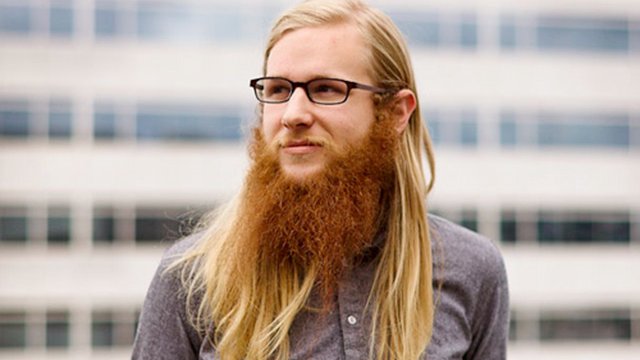
Prototype Fund winner Max Ogden building data-sharing ecosystem
Photo of Max Ogden. Courtesy of the Aspen Institute.
Imagine two government agencies that have the same data set on potholes. Right now, those agencies could have different versions of the data and might update them separately, with no way to easily compare or analyze the two sets of information.
Knight Prototype Fund winner Max Ogden wants to lower that barrier to sharing data and is well on his way to building a new infrastructure – meaning that someday there could be better data that might help government more efficiently address potholes, plow streets or serve residents in other ways. RELATED LINKS
“Prototype winner using ‘natural language processing’ to solve journalism’s commenting problem” by Vignesh Ramachandran, 02/16/15
“Prototype Fund winner aims to break ‘cycle of poverty’ with social services information platform” by Vignesh Ramachandran, 02/12/15
Ogden received $50,000 from Knight Foundation in 2013 to build Dat, a tool that will allow multiple people to collaborate on the same data set.
“It’s basically the result of the lack of any of these kind of collaboration tools. That was a big problem that I identified in a lot of civic, public data systems.”
Ogden says there are many efforts to publish data, but not many intended to allow the data to grow as people use it and to allow people to collaborate. His project takes inspiration from GitHub, a popular platform that allows users to collaborate on code. Dat keeps data sets in sync as collaborators make updates.
Knight funding helped Ogden figure out fundamental aspects of Dat’s platform: how to access, update and share data. The Prototype Fund’s six-month time frame—winners go through the program with a cohort of other projects—allowed him to focus on an achievable goal, Ogden says. The result wasn’t a refined platform with a fancy user interface, but a command-line flow that worked. The project is gearing up for a beta release with additional features this spring.
Ogden’s passion for civic activism and the open source community goes back to early projects.
After President Obama took office and implemented an open government data initiative, Portland, Ore., based-Ogden was inspired to build “PDX API,” which featured Portland’s government data sets. It led to the city eventually creating its own “Portland API.” Ogden was later awarded a Code for America fellowship, which allowed him to work on open source projects full time for the first time, he says.
Ogden also had a stint in the games industry where he learned a lot about software, but he says he became disappointed with the lack of openness in that commercial world.
After the prototype award, his work attracted the interest of the Alfred P. Sloan Foundation, where he’s been working with the scientific community on data challenges. Ogden says projects have included working with diverse partners, from DNA researchers to astronomers who want to do deep sky scans.
But Ogden is clear about the eventual use of Dat: It’s not solely a science tool or government tool.
“It will just kind of be a data tool and will have users in hopefully both fields.”
Housed at U.S. Open Data, which is funded by Knight and the Sloan Foundation, the Dat team includes three full-timers and one part-time staffer.
Data quality can improve overall, Ogden says, when more people are able to contribute to it. That’s why creating an ecosystem for this collaboration is his big-picture goal.
“I really want to lower the barrier to sharing data,” he said. “I think there’s a lot of excuses that people make that they don’t have the resources or it’s too complicated, or either their data’s too big or too complicated to just get the data out there.”
Applications to the Knight Prototype Fund are accepted on a rolling basis. The next deadline is May 15, 2015. Apply at prototypefund.org.
Recent Content
-
Journalismarticle ·
-
Journalismarticle ·
-
Journalismarticle ·


